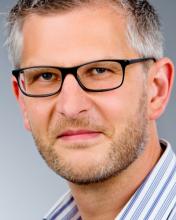
Member Prices
A Global Perspective on Resilience Factors as Moderators of Variability in Mental Health During COVID-19 in Diverse Clinical and Community Populations
This recorded webinar was featured at the 2021 ADAA Virtual Conference Resilience and Recovery: From Research to Practice. This webinar is part of a series of select recorded conference sessions which will be available on-demand.
Resilience is key to maintain mental health homeostasis during stressful times. It is not clear what the specific resilience factors are that help individuals to “buffer” stress. The COVID-19 pandemic is a major global stressor providing an opportunity to study resilience as individuals are faced with an unparalleled adversity.
This webinar presents data on resilience factors, COVID-19 stressors and mental health collected from various populations during the acute outbreak of the pandemic (March-April 2020), when the majority of study populations was in lockdown. Presenters discuss findings from two large studies (Cohort 1, N>5,000, mostly US; Cohort 2, N>15,000, mostly European) conducted in non-clinical populations; a study conducted in a pregnant population (N=900) enriched with racial minorities; and a study evaluating resilience factors in hospitalized COVID-19 patients (N=90) and their health care providers (N=828). Presentations provide evidence for the now widely recognized notion that resilience factors are critical in determining mental health throughout the lifespan in diverse populations with multiple outcomes. Together the symposium covers populations across the spectrum of human experience during the pandemic: from general populations to COVID-19 patients, and illuminate different perspectives on the complex interplay among COVID-19 related stress exposures, individual resilience factors and their interactions contribution to the variability in mental health during these unprecedented times.
Learning Objectives:
- Recognize the difference between resilience factors and resilience outcomes.
- Identify key risk and resilience factors that contribute to mental health during the pandemic.
- Discuss how different resilience factors help predict health-related outcomes in different populations across the lifespan.
Registration for the 2022 ADAA Conference in Denver March 17-20, 2022 is now open.














